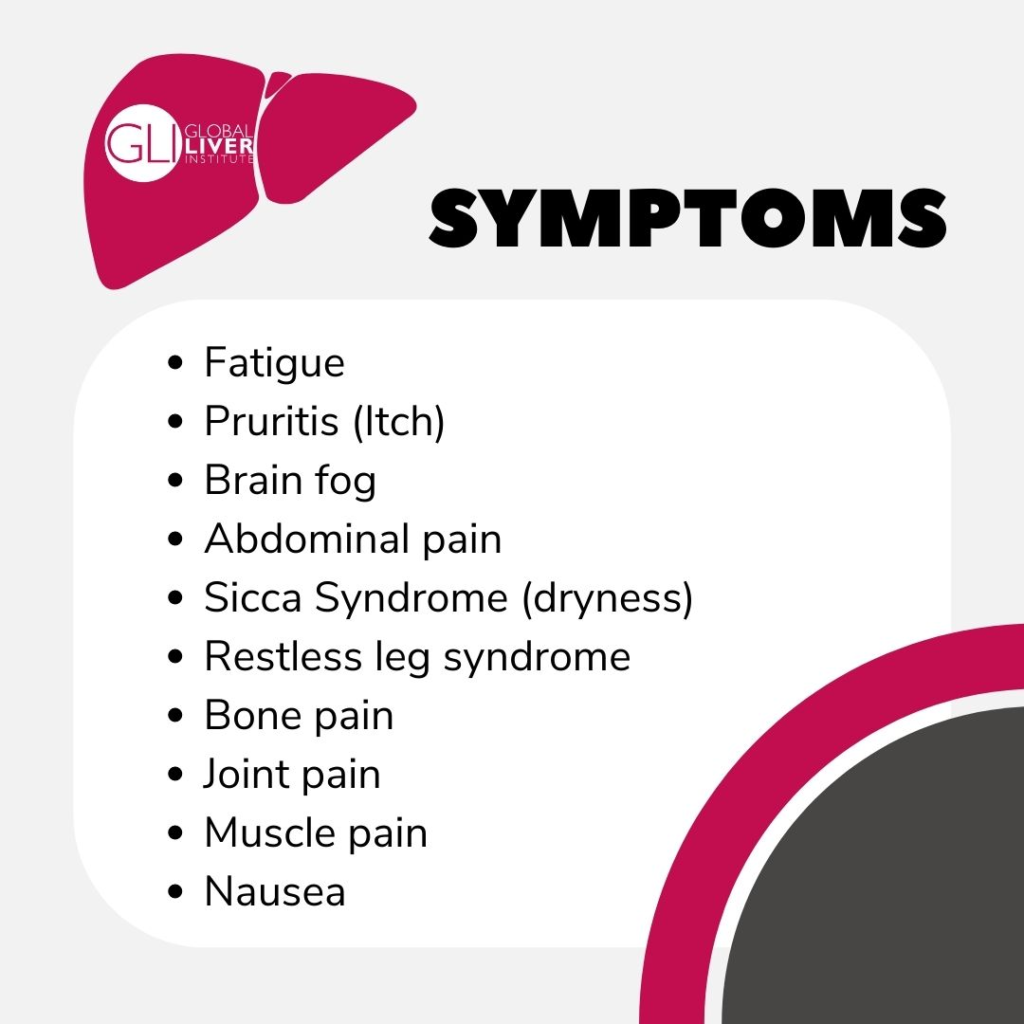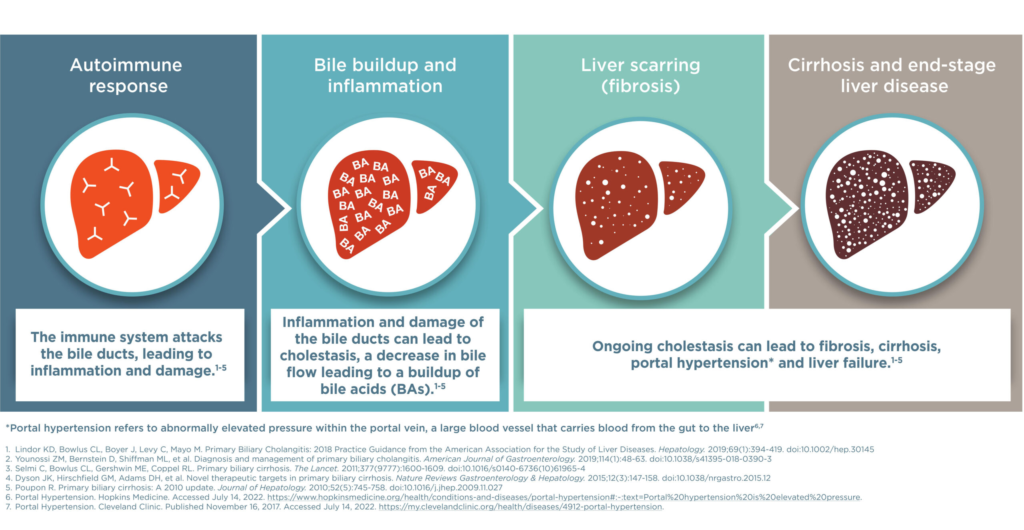Primary Biliary Cholangitis (PBC) is a chronic and progressive condition that causes inflammation and, eventually, the destruction of the bile ducts that run through your liver. Without working bile ducts, bile backs up in your liver, causing liver damage. This can lead to cirrhosis of the liver. But medication can delay and sometimes prevent it.
There are discernible symptoms–

And these are the stages–

LiverRight Providers Treat PBC
We’ll ask about your medical history and symptoms. Then we’ll test a sample of your blood for evidence of PBC. We look for particular antibodies in your blood that are associated with PBC, especially one called antimitochondrial antibody (AMA). We also look for elevated liver enzymes that indicate liver stress, especially alkaline phosphatase.
If your test results are positive for PBC, we’ll want to look at images of your liver and biliary system next. This helps to rule out other possible causes of your symptoms, and can also help show how advanced the disease is. We’ll usually begin with a simple test like an abdominal ultrasound. But sometimes, we may need to take clearer images, e.g., a liver ultrasound or MRI.
About 5% of people with PBC test negative for AMA but have other signs and symptoms. In this case, your LiverRight provider may need to send you for a liver biopsy to confirm you have PBC. The needle will withdraw a tiny tissue sample, and your provider will send the sample to a lab for examination under a microscope.
At LiverRight, we make use of the following treatments for Primary Biliary Cholangitis (PBC):
Medication
There’s no cure for PBC, but it can be slowed down and your condition can improve with medication. Ursodeoxycholic acid (UDCA) is a type of bile salt that can help clear bile from your liver and reduce liver damage. It works well for about half of people with PBC, especially in the early stages. For those who don’t benefit from UDCA, we might recommend a different bile salt called obeticholic acid.
LiverRight providers also can treat some of your individual symptoms with different medications. For itching, we may recommend antihistamines such as diphenhydramine (Benadryl® or Aler-Dryl®), ultraviolet light therapy or bile acid sequestrants such as cholestyramine. Vitamin supplements can help prevent vitamin deficiencies and side effects such as osteoporosis. Some people with fatigue benefit from stimulants such as modafinil.
